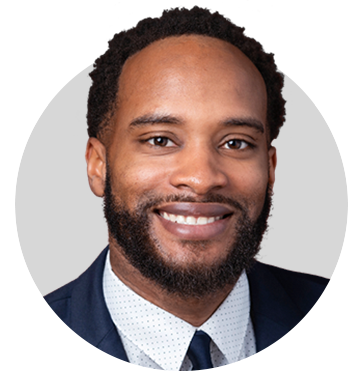Brian Windhorst and a team of ESPN's Insiders sort out life and the news from in and around the NBA world, including LeBron James' position on first-round draft picks, Lauri Markkanen's All-Star bid, NBA teams' cash allotment and the impact of Kevin Durant's injury on his MVP campaign.
LeBron James doesn't care about first-round draft picks. And if you were him, you wouldn't either.
James has toed the line, sometimes stepping on the pressure button a tad, regarding the Los Angeles Lakers' current high standard for touching their tradeable 2027 and 2029 first-round picks.
He has repeatedly said such front-office decisions are not his job, trying to avoid any implications. But he has made a comment -- or three -- during the season that have made his preferences on roster upgrades clear.
The reasons why the Lakers are so cautious about those picks have been documented. The reason why James has little care for future picks is assumed to be his age, now 38, and the desire to maximize his remaining playing days. That is certainly true, but there's more to it.
James' history with first-round picks might explain this position better.
In his now 20-year pro career, James' teams drafted a player in the first round and played him with James as a rookie a grand total of five times:
Luke Jackson, 2004
Shannon Brown, 2006
JJ Hickson, 2008
Norris Cole, 2011
Moritz Wagner, 2018 (drafted by Lakers before James' signed)
James played more than two seasons with one of them, Cole, who was also the only rookie first-rounder to play with James on a team that reached the NBA Finals. Hickson and James did establish a nice repertoire in two seasons together, though ironically the Cleveland Cavaliers were criticized for not trading Hickson for veteran talent before James left in free agency.
None of the players, respectively, had distinguished careers in the league. Wagner, it must be said, is still working on his. He's currently with the Orlando Magic, his fourth team in five seasons.
James' teams have traded their first-round pick 13 times and have moved 17 first-rounders (including picks that were acquired from other teams and re-traded) in total:
Sean May, 2005
Rudy Fernandez, 2007
Lazar Hayward, 2010
Jonas Valanciunas, 2011
Arnett Moultrie, 2012
Nemanja Nedovic, 2013
Andrew Wiggins, 2014
Tyus Jones, 2015
Skal Labissiere, 2016
Timothé Luwawu-Cabarrot, 2016
Furkan Korkmaz, 2016
Harry Giles, 2017
Caleb Swanigan, 2017
De'Andre Hunter, 2019
Jaden McDaniels, 2020
Isaiah Jackson, 2021
Dyson Daniels, 2022
Of these players, only one has reached an All-Star Game and that was Wiggins (the 2014 No. 1 overall pick), who made it for the first time last year in his eighth season.
Some of the younger players, including recent lottery picks Hunter and Daniels, are all still young with upside. Jones and Valanciunas are in the midst of respectable careers as role players. None of the others were, or are, stars.
While considering that, these are some of the teammates that James' teams acquired to play with him in trades involving those picks:
Chris Bosh
Kevin Love
Anthony Davis
Antawn Jamison
Timofey Mozgov
Kyle Korver
Channing Frye
Russell Westbrook
James won titles with most of them. The only ones who didn't go to the Finals with him were Jamison and, to this point, Westbrook.
To complete the record, James himself was traded for two first-round picks in the 2010 sign-and-trade deal that sent him to the Miami Heat. The Heat never regretted the four first-round picks they used that summer to acquire Bosh and James, which led to four straight Finals appearances. And neither has James.
You can make the point that when James' teams were really rolling, the picks his teams traded were often headed for the back of the first round. And, therefore, they were less likely to produce All-Star talent. James might respond to that by arguing that is the reason to trade such picks -- to make the team better around him immediately and lessen their value.
You can make the point that many of these situations came when the teams believed James would be with them for the years when the pick was traded. And, therefore, they would likely not be giving up too valuable of a pick because James always delivered a great record. The Lakers don't have that luxury; James will (probably) not be with the team in 2027 or 2029 to backstop where those picks could land.
All of that is understandable. But it is also understandable, when looking at this list above, why James developed this position after all.

Reporting from Chicago, NBA reporter Jamal Collier runs into a familiar face but from the visitor's side:
'The Finnisher' on the brink of first All-Star nod
Spend some time around the Utah Jazz and you're almost certain to run into someone wearing a Lauri Markkanen "The Finnisher" sweatshirt.
The sweatshirt photo features Markkanen standing tall and holding a basketball rim with ice in the background covering the backboard, a nod to both Markkanen's home country of Finland and the mountains in Utah. The photoshoot was a homage to a 1990s NBA marketing campaign featuring a poster of Karl "the Mailman" Malone as an actual mailman with the words "Special Delivery."
In preparing for the All-Star game, the Jazz are rolling out a campaign for Lauri Markkanen, starting with a 90's style poster of The Finnisher with Lauri surrounded by ice blocks etc pic.twitter.com/WyuE1s79O6
— Sarah Todd (@NBASarah) January 2, 2023
With Utah set to host its first All-Star Game since 1993, the Jazz once again believe they have a player worthy of representing the home team.
Markkanen's nickname, "The Finnisher," is written on the shirt's sleeve and features the Scandinavian cross from the Finnish flag within the words.
"It's a great nickname," Markkanen said after Saturday's game against the Chicago Bulls. "It's really stuck with me, kind of a mindset thing."
Markkanen scored 28 points, albeit in a 126-118 loss against the team who drafted him No. 7 overall in 2017.
He finished with eight dunks and looked far from the seemingly one-dimensional jump-shooter he was when he left Chicago. During Markkanen's last season with the Bulls in 2020-21, about 60% of his shots per game came from beyond the arc compared to 44% this season with the Jazz.
While putting up a career-high 49 points in a win against the Houston Rockets on Thursday, Markkanen missed six 3s in a row from the end of the first quarter until late in the fourth. In the past, Markkanen has struggled to stay productive during a cold shooting spell; however, he still scored 25 points.
"For a guy who maybe people have said it's all jump shots, he's found a way to adjust to how defenses are guarding him, adjust to the way his own game is going on a particular night," Jazz coach Will Hardy said. "He still finds a way to get to the free throw line, get easy baskets, impact the game around the rim."
Markkanen has found a home in Utah, and he has a strong case to make his first All-Star team. He's putting up a career-high 24.5 points on 53% shooting and 42% on 3-pointers. The only player averaging more points while shooting 50% from the field and 40% from 3: Golden State's Stephen Curry.
Combine that with 8.3 rebounds and 1.9 assists and Markkanen, 25, is putting together a season the Bulls imagined he could have had when they made him a key piece of the Jimmy Butler trade on draft night in 2017. "Everyone has their own growth period," Bulls coach Billy Donovan pointed out, but Markkanen's breakout season should serve as a reminder that sometimes it takes a while for a player to find the right combination of fit and experience.
"I know I've gotten better as a player, gotten more mature as a person, so I think it just takes time to evolve," Markkanen said. "Just sometimes I feel like I'm in the right place at the right time clicking with the coaching staff, system and the guys I'm surrounded with. It's a different path for everybody."
Bulls guard Zach LaVine, Markkanen's former teammate in Chicago, said: "I'm just happy for him. He's 100% an All-Star in my book."

Front-office insider Bobby Marks shows how there's more to trade season than the players themselves:
Cash rules everything around the NBA
The first trade of the regular season did not include Bojan Bogdanovic, John Collins, Jae Crowder or even Russell Westbrook.
The trade between the Boston Celtics and San Antonio Spurs featured the two words finance departments envy: cash considerations.
That's right, cash. Not a player who can tilt the balance of the standings for the second half of the season, but $1.5 million.
Here is how the transaction game involving thousands of Benjamin Franklins works.
Each team has $6,360,000 from July 1 to June 30 at their disposal to send or receive in a trade. The amount is then replenished to a projected $6,895,000 when the new league year starts in July.
For example, the Oklahoma City Thunder sent the full $6.36 million to the Houston Rockets in September to offset salary sent in the eight-player deal between the two teams. As such, OKC is not allowed to send money in a deal until July 1. Since it was an outgoing transaction, the Thunder are still allowed to receive up to the capped amount in a trade.
There are three reasons why teams elect to send money in a transaction: to reduce their tax bill, to offset salary or to buy a draft pick.
Last week's Celtics-Spurs trade, in which Boston sent Noah Vonleh to San Antonio, is an example of the first.
Vonleh had a $1.8 million contract that was set to become guaranteed Jan. 7. He had already incurred $1.2 million in salary and Boston would have been on the hook for the remainder if he was waived after that date.
By trading Vonleh to San Antonio, his salary was removed from the cap and Boston's tax bill was reduced from $66 million to $58.9 million. If Vonleh was waived outright, the tax bill would have been $63.3 million.
In short, the Celtics spent $1.5 million to save between $4.5 and $6.5 million -- a tax savings that could help the team offset the cost of filling its final roster spot with a veteran who gets bought out after the trade deadline.
The Spurs on the other hand profited $500,000 after deducting the $992,000 owed to Gorgui Dieng (who was waived to make room for Vonleh) and $28,000 for the two days Vonleh was on the roster before also being waived.
If there is a negative (and this is a stretch) it is that the Spurs' cap space decreased to $27.8 million because of the $1.1 million in dead salary of Vonleh.
An example of the second reason for including cash in a trade came in September, when the Detroit Pistons sent Kelly Olynyk, Saben Lee and $1.75 million to Utah in the Bogdanovic trade.
Lee was eventually waived, and the cash received by Utah offset his salary.
The third is to buy a second-round pick the night of the draft.
The third reason will come into play on draft night, as it did last year when the Lakers sent $2.15 million to the Orlando Magic for the rights to Max Christie. Overall, teams spent $8.4 million to buy six second-round picks in 2022.
You might be wondering how teams pay the cash and what the receiving team does with it? As part of the trade call, teams can negotiate a date for when the money is owed.
In the Vonleh trade, Boston had 45 days from the date of the trade to wire the money to San Antonio. The Thunder broke up the $6.36 million owed to Houston in two installments, payable within 45 and 90 days.
Teams are free to do whatever they please with the money received -- except of course redistribute it back to their own players.
Since the 2011-12 season, there have been only two teams (Sacramento and Orlando) who have never sent cash out in a trade and one team (the Lakers) who never received money as part of a deal.

The organizer of ESPN's MVP straw poll, NBA reporter Tim Bontemps, weighs in on the latest out of Brooklyn:
Injuries impact Durant, Curry's MVP candidacies
To win the NBA's Most Valuable Player award, you obviously need to be a great player. But you also need to be incredibly lucky.
Just ask Kevin Durant.
No one has been playing better than Durant over the past several weeks -- and, perhaps, over the course of the entire 2022-23 campaign. He's averaging just under 30 points per game while shooting 55% from the field -- largely on jump shots -- for a Brooklyn Nets team that has ripped off wins in 18 of its last 20 games to surge to the top of the Eastern Conference standings.
After finishing seventh in ESPN's NBA MVP Straw Poll last month, Durant was primed to skyrocket up that list the second time around, just like Philadelphia's Joel Embiid did last season at this time.
But then, during Sunday's win against the Miami Heat, a freak accident -- Heat star Jimmy Butler falling into Durant's leg -- will cause him to miss at least a month.
And, as a result, Durant's MVP chances have likely gone with him -- and through no fault of his own.
Even if Durant returns from his MCL sprain a month from now, he will still have missed 15 games total.
There have been two players who have missed more games than that and won MVP in a season: Bill Walton, who missed 24 in 1978, and Bob Cousy, who missed 18 in 164. Only two others -- Bill Russell (13) in 1958, and Allen Iverson (11) in 2001 -- have missed more than 10.
Stephen Curry's candidacy will likely hit a similar speedbump. Even if he makes his return for Golden State Friday in San Antonio, as Warriors general manager Bob Myers said in a radio interview, he'll have already missed 17 games because of another fluke play: him swiping down on the ball to go for a steal, and hurting his shoulder.
And then there is Embiid, who was in line to potentially win the award two years ago before an awkward fall on a dunk in Washington, D.C. paved the way for Denver Nuggets star Nikola Jokic to win the first of his two in a row in a romp.
Part of being the league's MVP is accruing value by being available for your team. But, oftentimes, being unavailable is out of a player's control.
That was the case for Curry a month ago. It was the case for Durant on Sunday in Miami. And as a result, what looked to be one of the NBA's deepest races for the league's top honor has seen injuries likely sap away the candidacies for two of the league's biggest stars.
